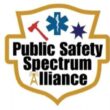Reconfiguration milestones, momentum
For those of us who’ve lived and breathed the 800 MHz reconfiguration process, Dec. 26, 2006 was a date with special meaning — it marked 18 months since the project began. In that year and a half, we’ve made a great deal of progress, but a lot of work remains to be done to realize our goal.
We’ve realized tremendous success with Phase 1 retuning and private wireless licensees. As of this publication deadline, Phase 1 retuning is now complete in 24 NPSPAC regions nationwide. In nine additional regions — including Chicago, New York and Northern California — Sprint Nextel has done all that it can do to enable incumbents complete Phase 1 retuning. In fact, Sprint Nextel has a Frequency Relocation Agreement in place with every Phase 1 license holder in those regions, and many — or even most — of those licensees have completed their work.
Moreover, Sprint Nextel has entered into Phase 2 negotiations with NPSPAC licensees, not just in those 33 regions, but in other locations as well. In many regions, we have Planning Funding Agreements signed and in place or that are close to approval. Still, progress has been slower and the issues more challenging with Phase 2, as it involves the more complex task of retuning public-safety licensees, and it includes the largest public-safety.
In recent months, a number of questions have arisen about the current timeline for reconfiguration. Sprint Nextel’s dedication to eliminating interference to public safety at 800 MHz is unwavering. Likewise, we know that the public-safety community and its leadership have been working hard toward this goal, and we will continue to collaborate with them until the job is done.
Nonetheless, Sprint Nextel also believes it would be prudent for the FCC to re-examine the current timeline. As I’ve noted, Phase 1 retuning should continue to move forward as intended. But Phase 2 faces stiffer challenges, many of which could not be anticipated when the FCC’s initial rebanding order was issued. Paramount among them is the need to allow adequate time for public safety to plan for the reconfiguring of their interoperable channels across jurisdictions.
Moving forward without such planning could result in unacceptable disruption to reliable public-safety communications. But it’s not just the public-safety issues that are more complex; Phase 2 calls for coordination with a larger cast of players as well, including a more varied vendor community. Retuning the Nextel network at Phase 2 also will involve more complicated spectrum exchanges, and greater patience and dexterity than did Phase 1.
Addressing shortcomings in the current reconfiguration plan will benefit all participants, including public safety, and will help to alleviate the difficulties that many NPSPAC licensees have encountered in planning for retuning under the existing process. We continue to have constructive discussions with all participants in the reconfiguration process, including the public-safety community, the Transition Administrator and the FCC, to ensure that we have proper momentum heading into the critical Phase 2 of the reconfiguration.
On a personal note, as many of you may be aware, I have retired from Sprint Nextel as of the end of 2006. I’ve been with Nextel, and then Sprint Nextel, for 15 years — spanning from the early days of FleetCall in the 1990s to the integration of two of the nation’s premier wireless companies in 2005. It has been a remarkable challenge to work on spectrum management over the years, and the work on 800 MHz reconfiguration has been a fitting capstone to my career.
I leave in place a great team that is skilled and prepared to see this project through until the last radio is retuned. Going forward, that team will be co-led by Bill Jenkins and John Wehmann. This will be my final column in this space, but no doubt one of these gentlemen will take up the baton and share with you the ongoing progress as we continue to work in collaboration with you to eliminate interference at 800 MHz, so that first responders have the clear communications they need to protect our country and make our communities safer.
Sandy Edwards recently retired as Sprint Nextel’s vice president for spectrum resources.













